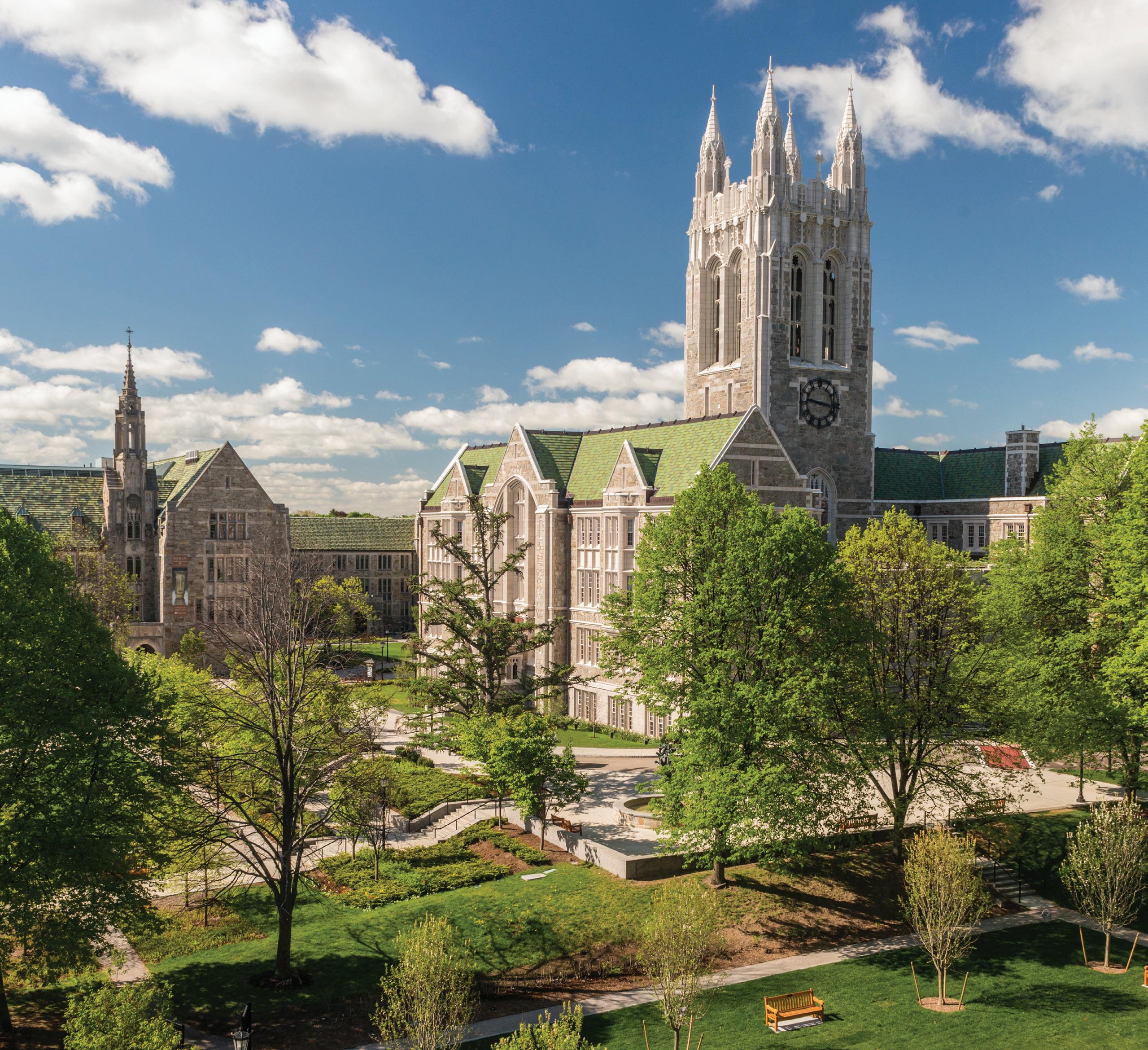The Gateway Initiative by the Numbers
5
Master of Social Work fellows have been placed in agencies for two years to support capacity building
100
Nonprofit organizations our team has connected with over the past 2.5 years
1,216
Faculty project hours
5,056
Student hours ~ 130,000
Individual residents served through BCSSW’s Gateway Initiative Partners
The Gateway Initiative is dedicated to building capacity across Massachusetts’ 26 Gateway Cities starting in Lawrence—by strengthening the systems, organizations, and community networks that deliver social, health, education, and human services.
The Boston College School of Social Work partners with nonprofits and organizations in the City of Lawrence through agency and community-led projects, field placements, and a fellowship program to enhance the quality of life.
Gateway Cities are midsize urban centers that anchor regional economies around the state. Since 2020, they are collectively majority-minority, according to MassInc Policy Center.
Message from the Dean
Settlement houses emerged in the late 1880s to support and strengthen communities. From Hull House in Chicago to Hiram House in Cleveland and the University Settlement in New York, they became vital hubs for assisting and mobilizing poor and immigrant populations. Schools of social work grew alongside these movements, sharing a mission to address pressing social needs. Yet, settlement houses were not without criticism— many saw them as paternalistic, imposing solutions rather than fostering shared leadership.
Today, we face a new version of the same challenge: What does a “settlement movement” look like for the 21st century? How can schools of social work respond effectively to communities in need? These questions drive the Gateway Initiative at the Boston College School of Social Work. Our goal is to build genuine partnerships—bringing together the best of the University’s knowledge and resources while ensuring communities lead the collaboration, set the priorities, and shape the solutions.
Massachusetts’ Gateway Cities are home to remarkable resilience, creativity, and untapped potential. Yet, they also face systemic challenges—historic disinvestment, under-resourced services, and disparities in health, education, and opportunity—that can limit the well-being of residents. The Gateway Initiative was born from a simple but urgent belief: When communities have the tools, data, and capacity they need, they can design solutions that work for them and create lasting change.
Over the past two and a half years, we have worked alongside partners in Lawrence to strengthen the
nonprofit organizations, public institutions, and grassroots networks that make up the city’s social fabric. The Gateway Initiative collaborates with nonprofits and other organizations in Lawrence to break down barriers, working together to turn data into decisive action, strengthen management and planning capacity to design and deliver services that truly serve the community, and incorporate community-led design practices and systems change tools into everyday work. From improving youth mental health through the Atrius Health Equity Collaboration, to building a real-time predictive policing dashboard with Public Safety Data that supports smarter, more equitable public safety, to mapping trees, gardens, and open spaces with Groundwork Lawrence to expand environmental resilience—we are turning local insights into tangible impact.
Through this initiative, our Master of Social Work students participate in The Gateway Fellowship program that is embedded in trusted community organizations, bringing both fresh energy and professional expertise to address pressing needs. And in every project, we emphasize collaboration:
co-creating solutions with residents, grounding decisions in local data, and ensuring that strategies are culturally responsive and sustainable.
The lessons we are learning in Lawrence will guide our work with other Gateway communities around Boston and beyond. This is not just a local effort—it is a blueprint for how higher education, nonprofits, and communities can join forces to dismantle barriers and build systems that truly serve the people they are meant to serve.
The work ahead is urgent, but it is also deeply hopeful and forward-thinking. Together, we are proving that when we invest in community-led capacity building, we invest in equity, resilience, and the future.

Gautam N. Yadama Dean, Boston College School of Social Work
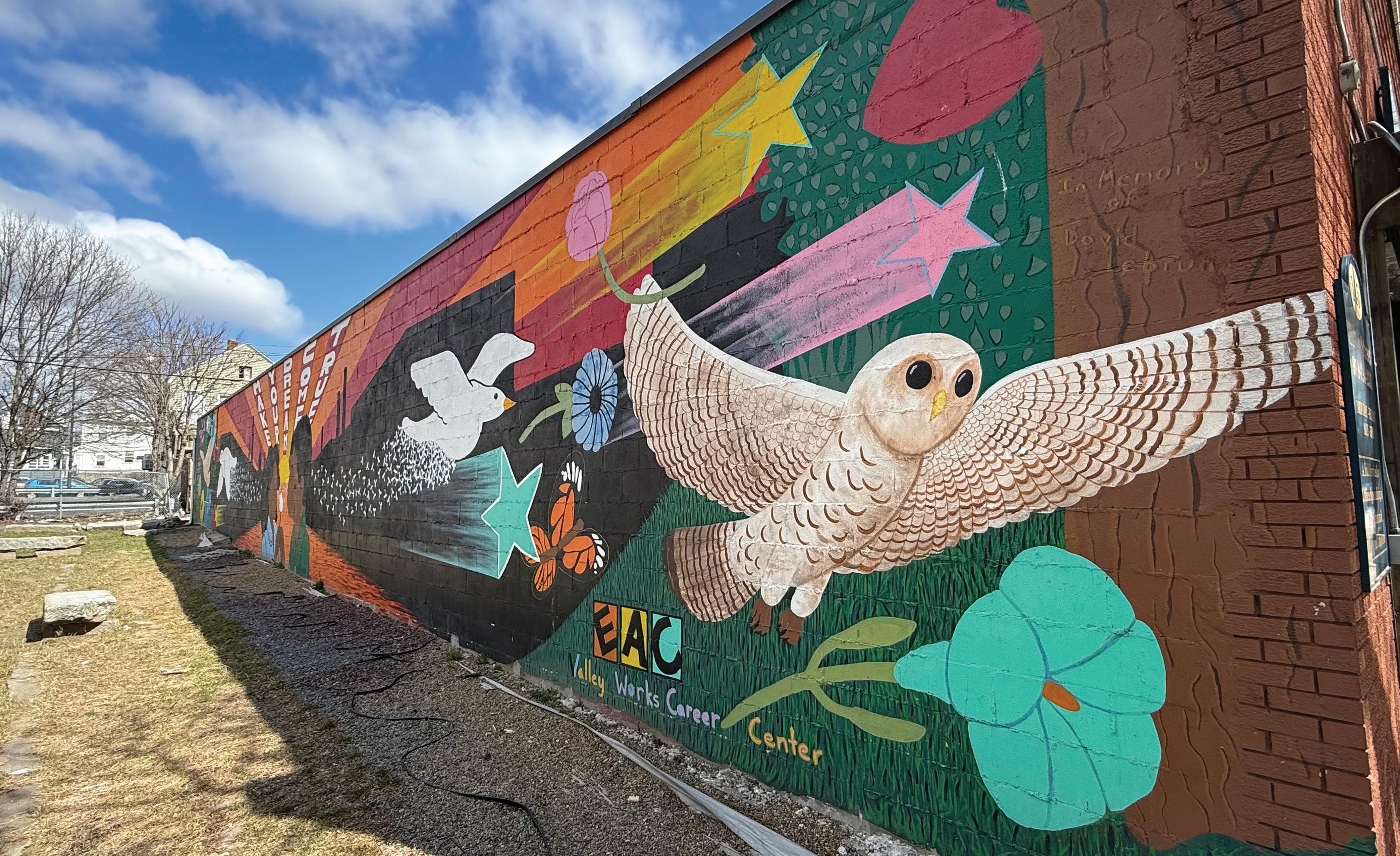
Serving Together, Standing Together.
Through organizational development, data driven decision-making, and communityled design, we invest in tools, training, and partnerships that empower Lawerence to address community needs with insight, equity, and lasting impact.
The Boston College School of Social Work has spent the last two and a half years working alongside Lawrence’s community organizations to create sustainable, transformative solutions for residents of every age and background.
Populations Served through Gateway Initiative Partners
49% Across the Lifespan
38% Young Adults/Adults
8% Children, Youth, and Family
5% Immigrants/Refugees
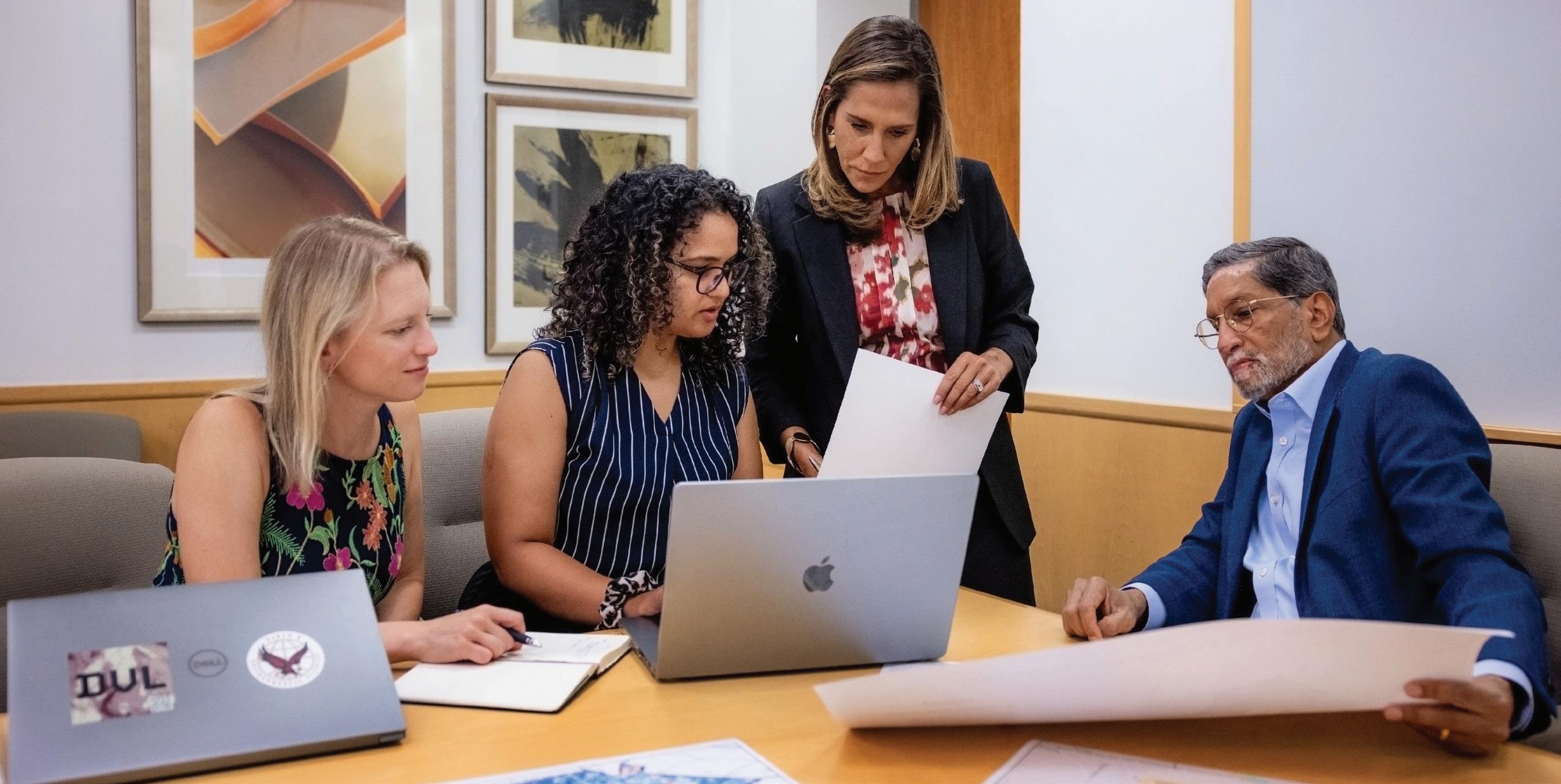
Types of Gateway Initiative Partner Organizations
Shaping change in the classroom, driving it in the community.
The faculty at Boston College’s School of Social Work are active scholars and practitioners, focusing on translational research and co-designing solutions with communities. They partner with communities to design, develop, and test social interventions for urgent social issues. 10
Number of undergrad students who have worked on the Gateway Initiative
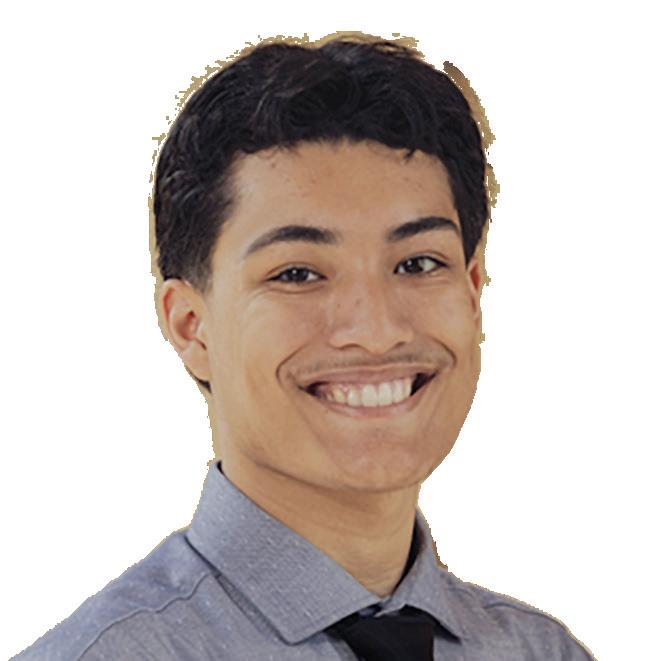
In tandem, we train our MSW students to focus on the social determinants of health, which are ‘the causes of the causes of ill health,’ as Sir Michael Marmot noted. Our curriculum helps students understand how youth and families are supported through wraparound systems of care, recognize the impact of the social determinants of health, practice design thinking to tackle challenges and co-create solutions, and apply data analytics to make a positive social impact.
A cross-displinary approach
For the Lawrence Gateway Initiative, BCSSW engaged faculty and undergraduate students in the Morrissey College of Arts and Sciences to bring their expertise in data collection, analysis, and visualization to projects. Assistant Director Kate Willis, Ph.D. oversaw the use and presentation of data for projects.
Working with the Gateway Initiative has deepened my understanding of how data can be used to drive social change. It’s shown me the power of collaboration between research and practice, and how intentional, communityinformed data collection can directly support equity-focused interventions.
Indel Garc I a ’26
Community organizations involved through the Lawrence Gateway Initiative to date
ACT Lawrence
Beyond Soccer
Bread and Roses Housing
Bread and Roses Kitchen
* Children’s Friend and Family Service
Community InRoads
Elevated Thought
* Esperanza Academy
Ferreras Counseling and Wellness
Greater Lawrence Community Action Council (GLCAC)
Greater Lawrence Fellowship of the Arts
* Greater Lawrence Technical School
Groundwork Lawrence Inspired Vibes
IronStone Farm
Lawrence Boys and Girls Club
Lawrence Catholic Academy
Lawrence Community Works
Lawrence Partnership
Lawrence ProsperaQuintana Center
Lawrence Prospera- SISU
Lawrence Public Library
Lawrence Public Schools
Lawrence YMCA
* Lazarus House Ministries
Notre Dame Cristo Rey
Notre Dame Education Center
Partners for Child Development
Phoenix Charter Academy
Ruth’s House
SquashBusters
St. Mary the Assumption Parish
St. Patrick’s Parish
Sueños Basketball
The Arc of Haverhill and Newburyport
The Kindness Collaborative
Top Notch Scholars
Youth Development Organization
YWCA
* Boston College School of Social Work field placement sites in Lawrence for academic year 2024–2025
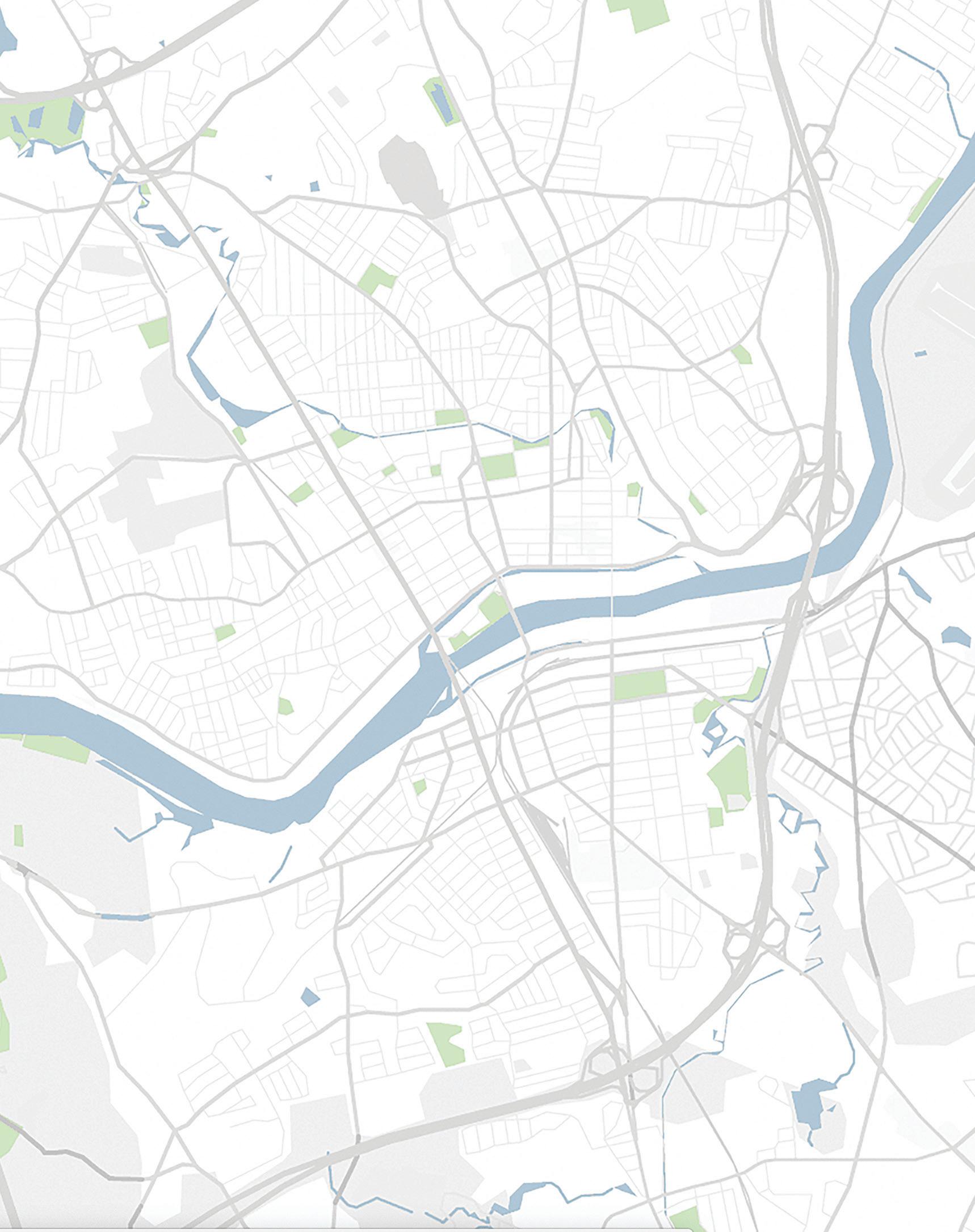
Field placements provide experiential learning opportunities for MSW students with agency partners. This real-world experience is for a one year assignment.
Supported by BCSSW faculty and Fellows, here’s a look at three Gateway Initiative projects and their community impacts.
Youth as Change Agents with Atrius Health
The Atrius Health Equity Collaboration is a five-year, $5 million initiative funded by the Atrius Health Equity Fund dedicated to improving youth mental health and family wellness in the city of Lawrence, Massachusetts. This multi-organization effort brings together nine local community-based organizations to co-create programs and systems that center the voices and needs of young people.
The initiative was designed to address urgent concerns regarding youth mental health, workforce development, and long-term health outcomes, particularly in historically underserved communities. Rather than focusing solely on clinical care, the collaboration emphasizes non-clinical, culturally grounded strategies, including healing circles, mindfulness, peer support, art therapy, and leadership development.
Director of Community-Based Initiatives Yvonne Castañeda and BCSSW were invited to serve as key thought partners in this initiative, with a particular focus on supporting data collection and leading program evaluation efforts to ensure that communitydriven strategies are both impactful and sustainable over time.
~ 3,962
Total Estimated Youth Served through Gateway Initiative partners
Core Objectives
• Create a youth wellness ecosystem by expanding staff capacity and implementing non-clinical mental health programming.
• Foster youth leadership and empowerment via a paid leadership cadre, training, and advocacy efforts.
• Build career pathways in healthcare by connecting youth to internships, mentorship, and educational resources.
• Promote healthy neighborhoods through youth-led events, community outreach, and public education.
This is a capacity-building initiative—strengthening the ability of organizations to support youth mental health in a sustainable way beyond the duration of the grant. Over five years, the collaboration aims to reach more than 1,600 youth and their families, generating a lasting impact throughout the community.
Organizations Involved:
• Youth Development Organization
• Elevated Thought
• SquashBusters
• ACT Lawrence
• Groundwork Lawrence
• Top Notch Scholars
• Greater Lawrence Family Health Center
• Lawrence General Hospital
• Lawrence Community Works- Movement City
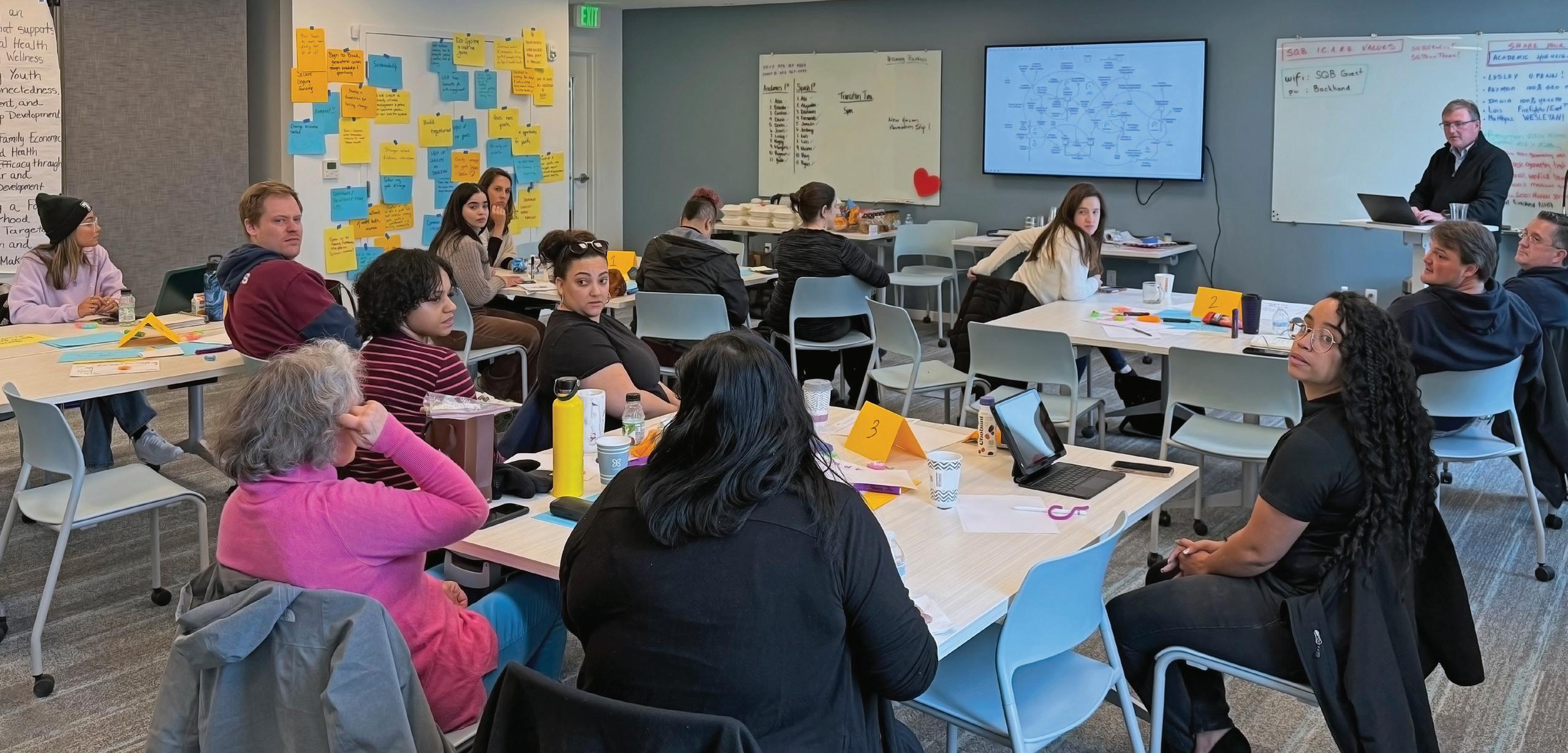
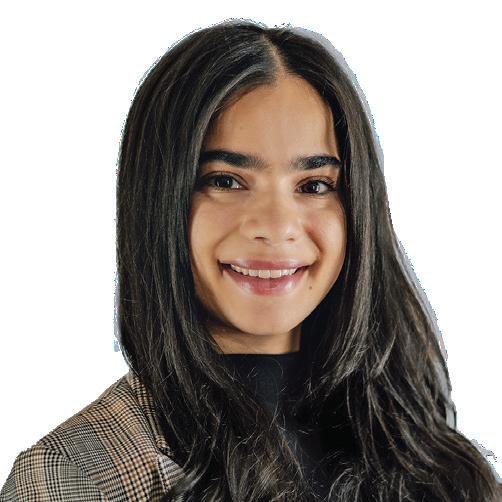
The Boston College School of Social Work has played a vital role in supporting the development of the Atrius Health Equity Foundation Lawrence Initiative. Parent listening sessions created opportunities for partners to build relationships, gain a deeper understanding of the youth’s vision for their community, and explore meaningful ways to support that vision moving forward. We are incredibly grateful to have BCSSW as part of this initiative. Their invaluable support, insight, and partnership have strengthened the foundation of this work, and we look forward to continuing to grow together.
Gabr I ela b etances
p roje C t Dire C tor, l awren C e Community work S
Harnessing Public Data and Pattern Recognition to Improve Safety Outcomes
Public Safety Data Analytics for Proactive Community Interventions
The Lawrence Public Safety Analytics Project is a data-driven initiative aimed at better understanding crime trends through the analysis of publicly available daily crime log data. The project’s goal is to transform raw data into actionable insights that support more effective and proactive public safety strategies in the Lawrence community.
BCSSW Research Associate Professor in Data Science for Social Impact Ritika Pandey has built and launched a powerful analytics dashboard that breaks down police incident data into clear visual insights, offering a deeper understanding of:
• crime patterns
• temporal trends
• spatial distributions across the community
Building on this foundation, the team is now actively working to incorporate secondary data sources to enrich analytics and reporting capabilities. Over time, they plan to integrate socioeconomic indicators, demographic information, and community factors to provide a more comprehensive understanding of the multifaceted elements influencing crime patterns and public safety dynamics.
The next phase of development focuses on:
• Implementing automated data ingestion processes to replace manual downloads from the Lawrence police website.
• Enabling real-time data access that will transform our static dashboard into a dynamic, continuously updated platform.
This real-time tool provides decision-makers with current, actionable information, laying the groundwork for using machine learning to predict where and when crime may occur. By analyzing patterns over time and across locations, this predictive tool will enable law enforcement to take a more proactive approach and make informed decisions about where to focus their resources.
By transitioning from secondary data integration to real-time predictive capabilities, this innovative, scalable model will establish a straightforward framework for other Gateway Cities to better understand crime trends and enhance public safety. By combining advanced predictive analytics, smart data integration, and strategic resource optimization, this approach enables communities to adopt a more data-driven approach to addressing their own unique needs.

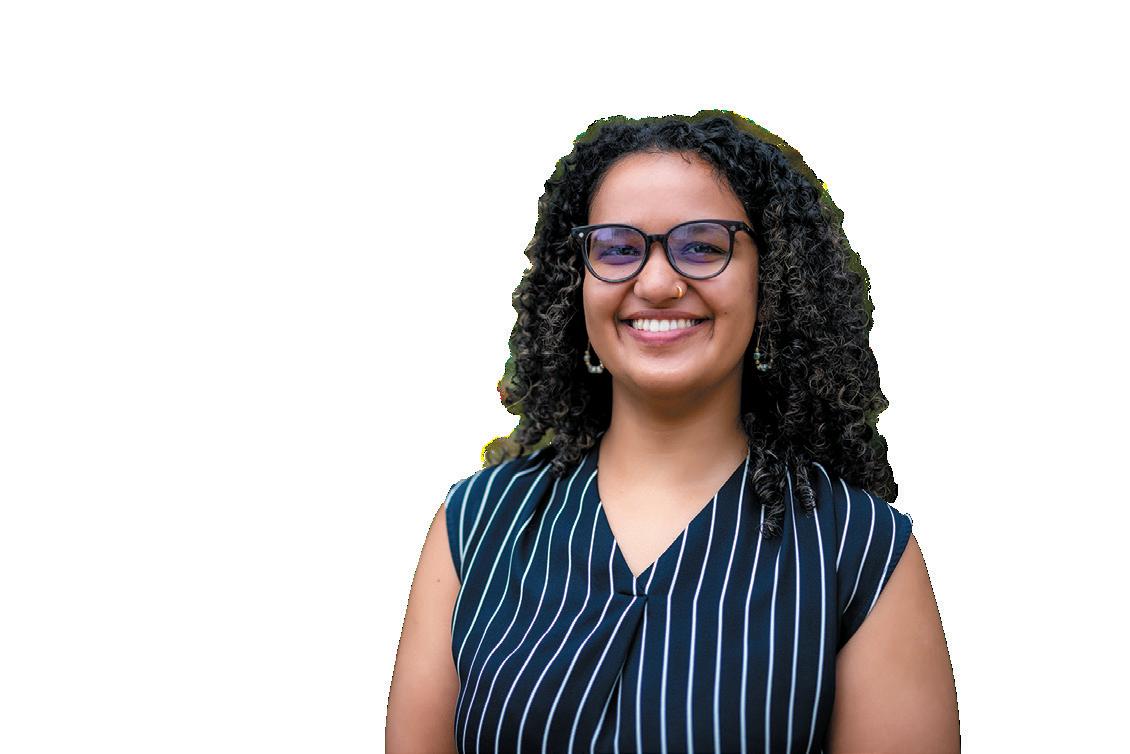
has a lot of power, and by turning it into visuals, trends, and social-economic and demographic context, along with adding predictive analysis, we can spark more transparent conversations and help communities like Lawrence use data to drive real, practical solutions and work towards safer neighborhoods.
rI t I ka Pandey, Ph. d .
Project Highlights
Growing a Resilient Community through Green Spaces with Groundwork
Lawrence
Overview of Tree Mapping and GIS
Dashboard Program
Through BCSSW’s partnership with Groundwork Lawrence, BC faculty and students worked on the organization’s ongoing efforts to promote environmental stewardship and equitable access to green spaces. Data & GIS Analyst Megan Sharkey developed an interactive dashboard to map and visualize the city’s growing urban forest and green infrastructure.
The dashboard features a comprehensive Tree Mapping Tool, which catalogs all trees planted through GWL’s tree-planting initiatives. Each tree is categorized by genus, species, and planting location, offering a detailed inventory that supports long-term maintenance, biodiversity tracking, and community education.
In addition to tree mapping, Sharkey also worked on:
• Community Gardens Map: A visual guide to the city’s network of community gardens, supporting food access and neighborhood engagement.
• Open Space Map: Developed in collaboration with the City of Lawrence, this map identifies existing open spaces and highlights potential sites for future parks and development, supporting municipal planning and informed land use decisions.
• Conference Participant Map: A custom map created for attendees of Groundwork Lawrence’s annual conference, offering an engaging and user-friendly way to explore environmental projects throughout the city.
These tools were designed to support data-informed decision-making, enhance transparency, and underscore the crucial role of urban green spaces in fostering a healthier, more resilient community.
Tree Cover Mapping (TCM)
Tree Mapping is a tool developed by scientists at the U.S. Geological Survey Earth Resources Observation and Science Center to visually depict tree cover density in a given area.
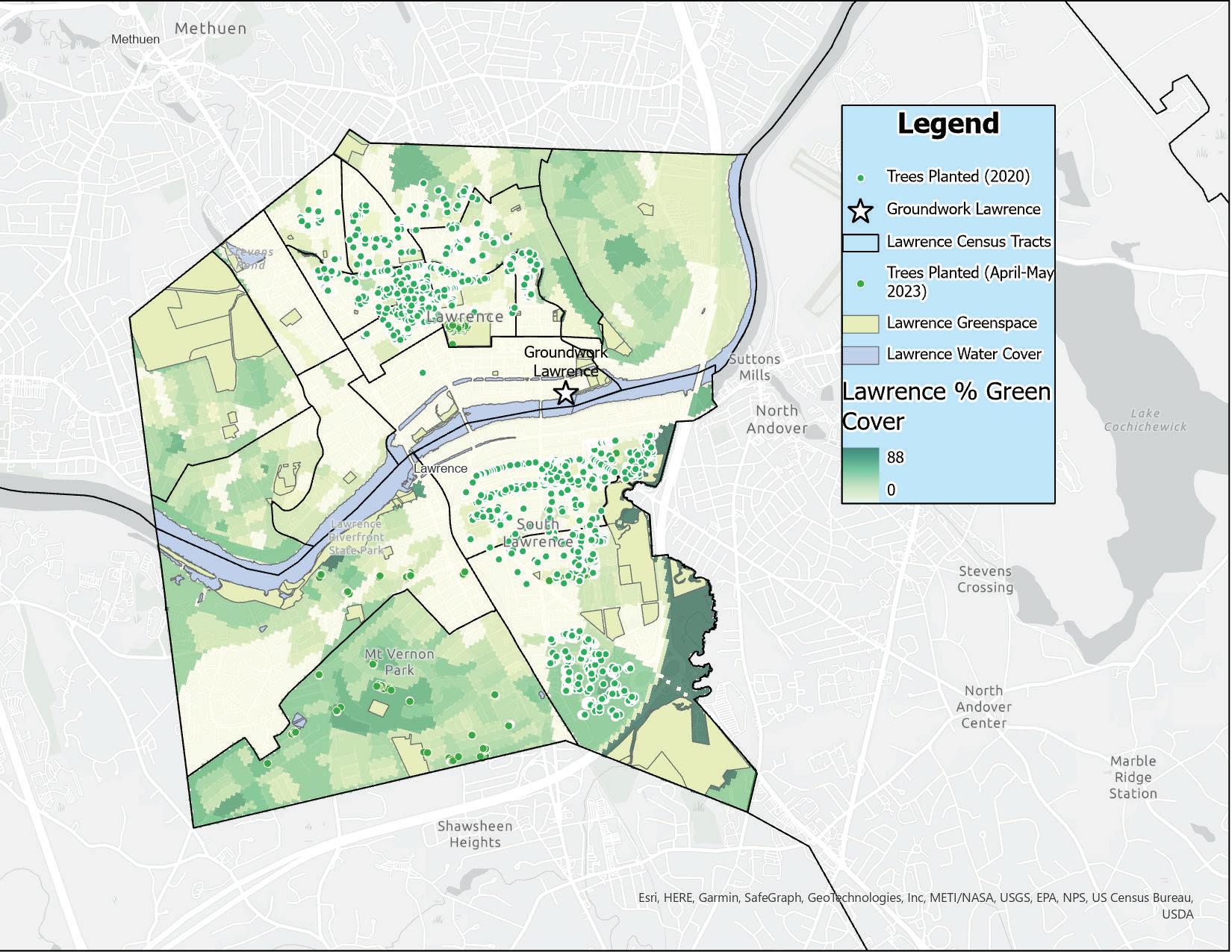
Number of geospatial maps of Lawrence developed
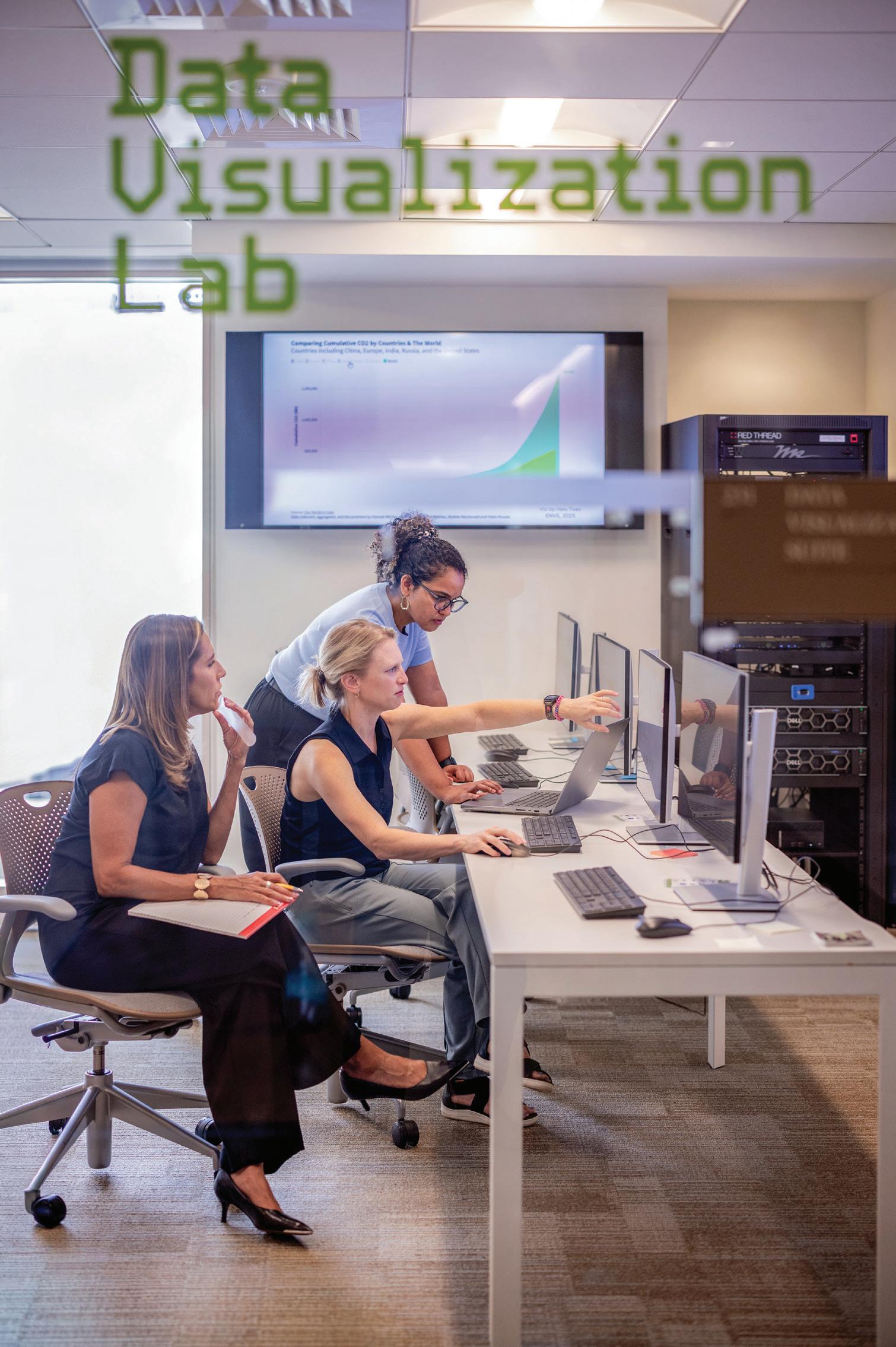
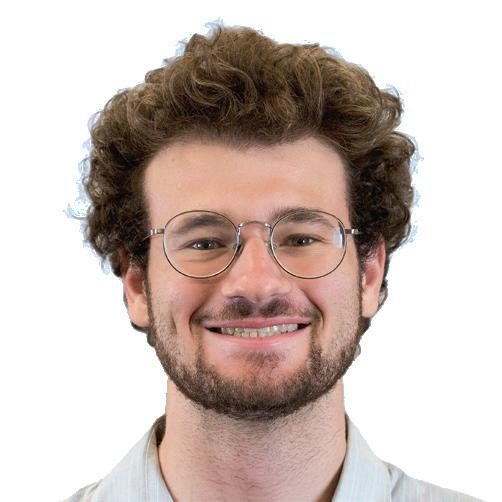
As an environmental studies student learning GIS for the first time, I saw the real-world connections between the environmental and socioeconomic conditions of Gateway Cities. My passion for protecting the environment stems from the belief that all people have a right to live safe and healthy lives and our partnership emphasizes the benefits of true collaboration.
t J Frohl I chste I n ’25
e nvironmental Stu D ie S major, Stu D ent r e S ear C her
Team Members
Our Ongoing Commitment to the City of Lawrence
The Boston College School of Social Work has worked collaboratively with colleagues across the wider University community to leverage the strength of data science and analytics to provide sustainable solutions for our partners in Lawrence.
Yvonne Castañeda, LICSW, MSW’18
Director of Community-Based Initiatives, Boston College School of Social Work
Yvonne Castañeda serves as director of communitybased initiatives at the Boston College School of Social Work, where she leads the Gateway Initiative— an effort to strengthen nonprofits in Gateway Cities through community-driven capacity building, data equity, and workforce development. As part-time faculty, she teaches Basic Skills in Macro Social Work to students in the Latinx Leadership Initiative, helping form the next generation of equity-minded practitioners. Castañeda’s commitment to healing and justice extends beyond the classroom—she is a trauma-focused clinician working with Latinx individuals, couples, and families in private practice, and a public speaker and storyteller who shares powerful, uplifting messages rooted in lived experience. She also contributes to Psychology Today and serves on the boards of North Suffolk Community Services, Doc Wayne, and NASW-MA.
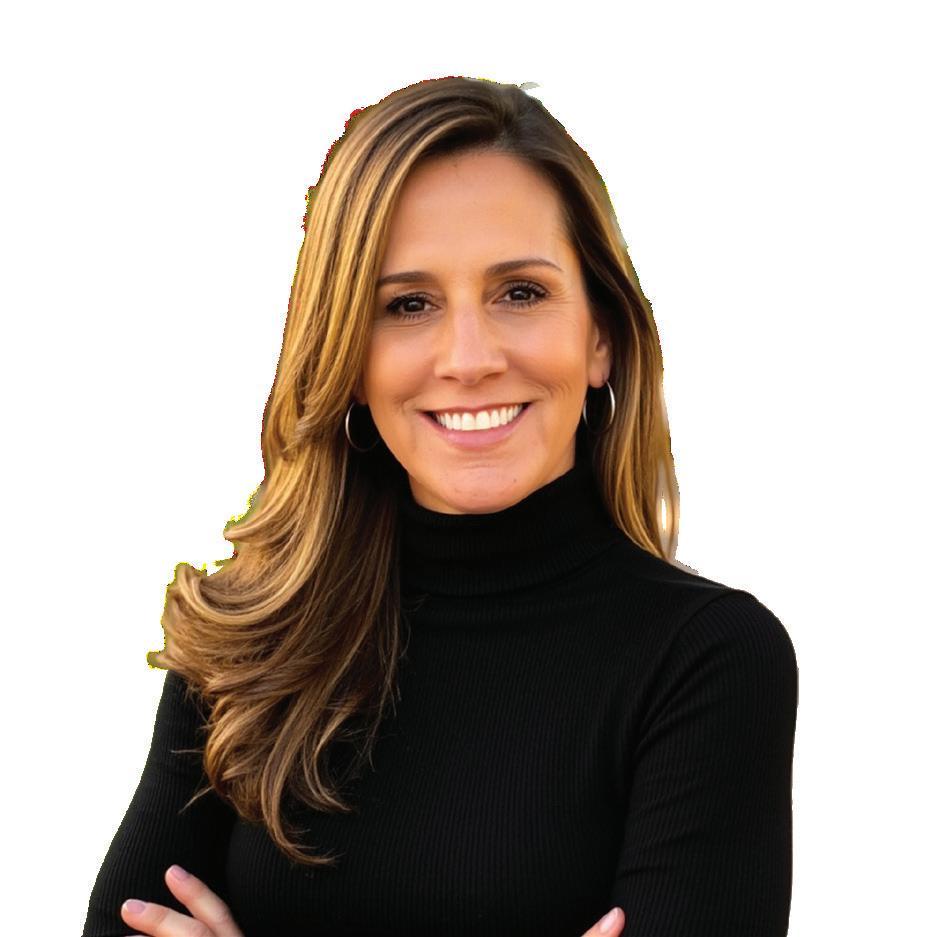

Ritika Pandey, Ph.D.
Research Associate Professor, Data Science for Social Impact, Boston College School of Social Work
Ritika Pandey is a research associate professor at the Boston College School of Social Work. Her research lies at the intersection of machine learning, natural language processing, and network analysis, with applications in social harm, criminal justice, and public health. She earned a Ph.D. in computer science from Purdue University, where her dissertation focused on rewiring police officer training networks to reduce forecasted use of force. Some of her work includes projects on modeling homicide investigations using knowledge graphs and analyzing transitions in drug use and recovery through text mining of online communities. She collaborates with community stakeholders, nonprofits, and government agencies on The Gateway Initiative to develop data-driven solutions that create meaningful social impact.
Kate Willis, Ph.D.
Assistant Director, Data Visualization Lab, Earth and Environmental Sciences Department, Boston College Morrissey College of Arts and Sciences
Kate Willis is the assistant director of the Data Visualization Laboratory. She designed and oversees the lab, where the BC community can create interactive maps, illustrations, charts, diagrams, and other graphics to represent complex data visually. In addition, Willis supports research in the Earth and Environmental Sciences Department as well as the School of Social Work by conducting geospatial analysis and teaching GIS. She has worked in academia and industry, mapping landscape change in National Parks, monitoring drought impact, reconstructing past Arctic climates, improving equitable access to MBTA services, and modeling sustainable agriculture practices.

Megan Sharkey
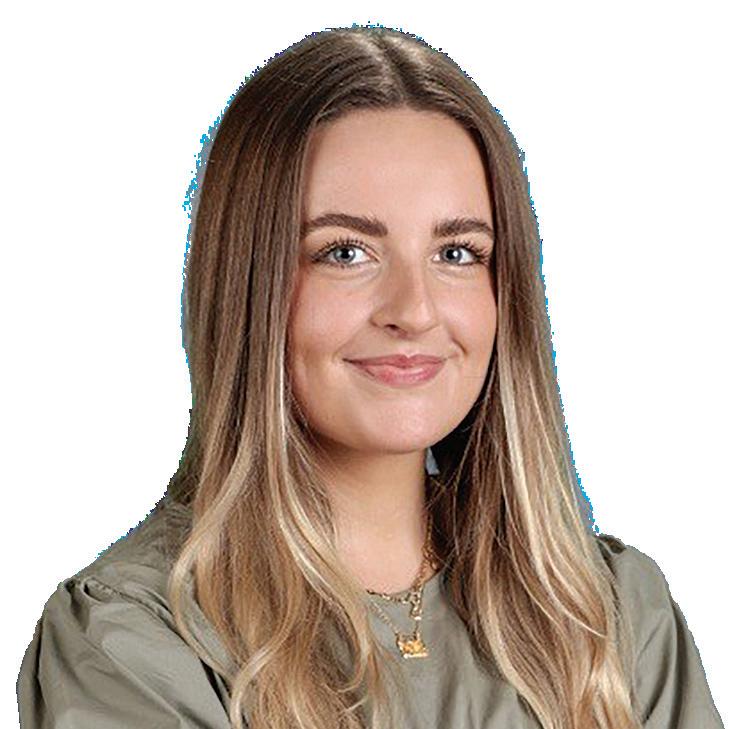
Data & GIS Analyst, Sustainable Community Development
Megan Sharkey began working with the Gateway Initiative in 2022 as a GIS research assistant while completing her undergraduate degree at Boston College. Upon graduating in 2023, she joined the initiative full-time as the Sustainable Community Development Liaison, based at Groundwork Lawrence, where she advanced environmental justice goals through urban forestry, youth engagement, and collaborative community projects. In 2024, she became the Gateway Initiative’s data & GIS analyst. In this role, she built partnerships with communitybased organizations, led advanced spatial analyses, and developed innovative mapping and data visualization tools to support decision-making. With a background in environmental studies and a focus on justice and policy, Sharkey is dedicated to using data and GIS to amplify community voices and promote equitable, sustainable development.
Read more about Gateway Cities
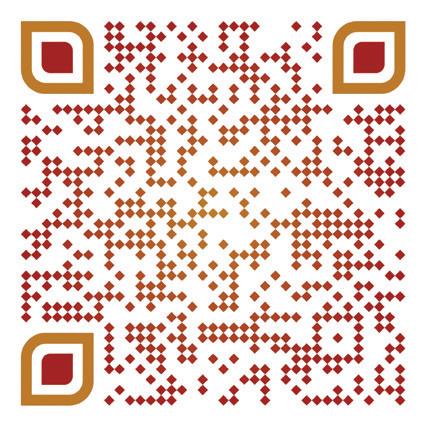
Our Ongoing Commitment to the City of Lawrence
The Gateway Fellowship Program at the Boston College School of Social Work is a two-year graduate-level initiative designed to build capacity within community-based organizations in Massachusetts’ Gateway Cities, starting with Lawrence. Through a mix of field education, mentorship, and hands-on learning, the program places four MSW students (two clinical and two macro) at trusted local organizations to support direct service delivery, strengthen systems, and help organizations grow and evolve.
Each Fellow receives a stipend, supervision, and transportation support, and is embedded in the larger Gateway Initiative, which seeks to promote equity, resilience, and well-being in Gateway Cities through multi-sector collaboration.

Purpose of the Fellowships
The fellowships are designed to meet the following goal via our three-pronged approach:
Goal: Strengthen the capacity of nonprofits to deliver social, health, education, and human services to individuals, families, and neighborhoods of Lawrence, Mass.
Three-Pronged Approach:
1. Build the capacity of nonprofit organizations in management and planning to design and deliver services that address community needs.
2. Foster data-driven decision-making and promote a culture of data reliance and action within agencies.
3. Strengthen agency capacity to lead community-driven design practices and create systems change tools that incorporate the diverse views of youth, families, health, education, social service organizations, and community members to accurately identify the core issue and develop and implement suitable programs and interventions.
2025–2027 Fellowship Placements
The organizations listed below will host Fellows
Greater Lawrence Community Action Council
Atrius Health Equity Collaboration (2 fellows)
Partners in Child Development
Notre Dame Cristo Rey High School
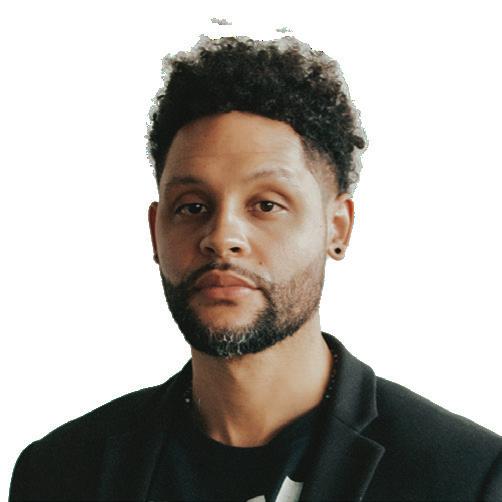
With the support, consulting, expertise, and overarching care of BCSSW, our program team members have identified organic entry points to earnestly begin work to expand access to mental healthcare for youth through an integrated set of strategies addressing factors influencing community health.
Marqu I s V I ctor
e xe C utive Dire C tor of e levate D t hought, part of the atriu S h ealth e quity Colla B oration
